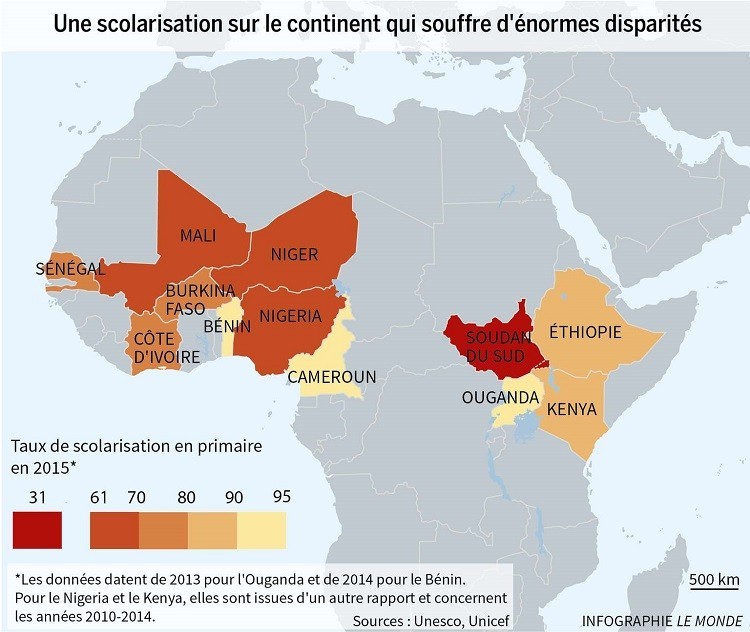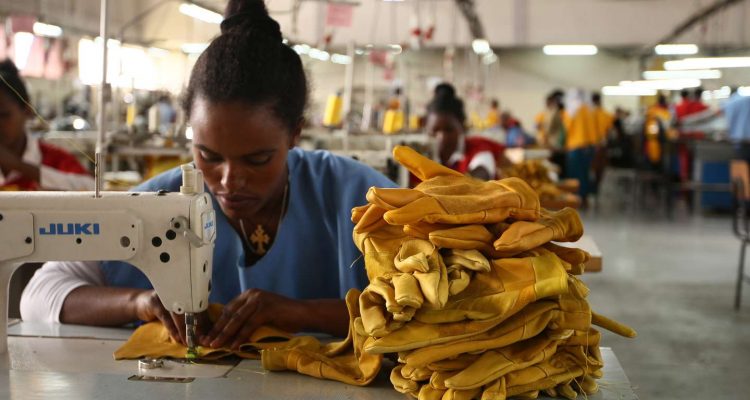The shoes have no secrets for Nathnaël *. Moccasins, oxfords, sneakers … He can make everything by hand. Concentrated air, the Ethiopian student explains the steps, drawings in support, and then grabs a skin. “The problem is that the skin is cut roughly with a knife,” he says, showing tears. The quality of the leather also depends on the age of the cow: the skin will be less flexible if the animal is older. “
Nathnaël learned everything at the Leather Industry Development Institute, which has 450 students in Addis Ababa. Twenty years ago, the authorities set up this training center to develop the workforce and encourage research and development in the sector. The government’s goal is to become a major player in this market.
Previously, the country, which has the largest livestock in Africa with about 72 million head of cattle, exported raw hides. He started manufacturing semi-processed and finished products. “There are 34 tanneries, 24 shoe factories, and many small and medium-sized production units,” says Berhanu Serjabo, director of communications for the Institute. We must be competitive internationally. The sector needs a trained workforce: “We still have a lot of progress to make. ”
Become the workshop of China
Professional training remains one of the priorities of the government’s second Growth and Transformation Plan (2015-2020). The Ministry of Education has only one acronym: TVET, for Technical Vocational Education and Training.

CREDITS: INFOGRAPHY “THE WORLD”
Ethiopia has 1,348 TVET based on the German model, 39 of which are specialized in leather. The government’s goal with this strategy, launched in 2008, is “to respond to the needs of the labor market and to create a competent, motivated and adaptable workforce capable of stimulating economic growth and development”, in the words of of the reference document.
Because Ethiopia has an industrial ambition: to become the workshop of China. For this, it must transform its economy still predominantly turned to agriculture. The environment is favorable to foreign investors who benefit from broken prices to rent land, exemptions from taxes on imported equipment and at very low wages, up to ten times lower than in the Middle Kingdom.
The scourge of unemployment
Still, the local workforce is not known for its productivity. Investors criticize the lack of motivation and the low level of qualifications that do not correspond to international standards. At Huajian, one of the largest Chinese footwear manufacturers in Ethiopia since 2012, home training is preferred. Ditto at Pittards, British manufacturer of leather gloves, which employs more than 700 people in Addis Ababa.
Ethiopia’s Beza Adugna, creator of the leather goods brand Ruby Leather, admits that one must “always be behind the workers”, but she refuses to say that the local workforce is not qualified. “Some foreigners lack an understanding of our culture,” says Berhanu of the Leather Industry Development Institute. He is proud to say that his center trains Sudanese, Ugandan and Tanzanian students.
For their part, students would also like the government to do more. “There is only one leather institute in the country,” says student Nathnaël. He and his friends decided to follow a training course in this sector, which is conducive to employment and pragmatism. “To survive,” he says. An engineer friend had to become a tuk-tuk driver because he could not find a job. Nathnael would like vocational training centers to multiply, to narrow the gap between theory and practice. And to respond to youth unemployment, a plague in Ethiopia.
Le Monde Afrique


Leave a Reply